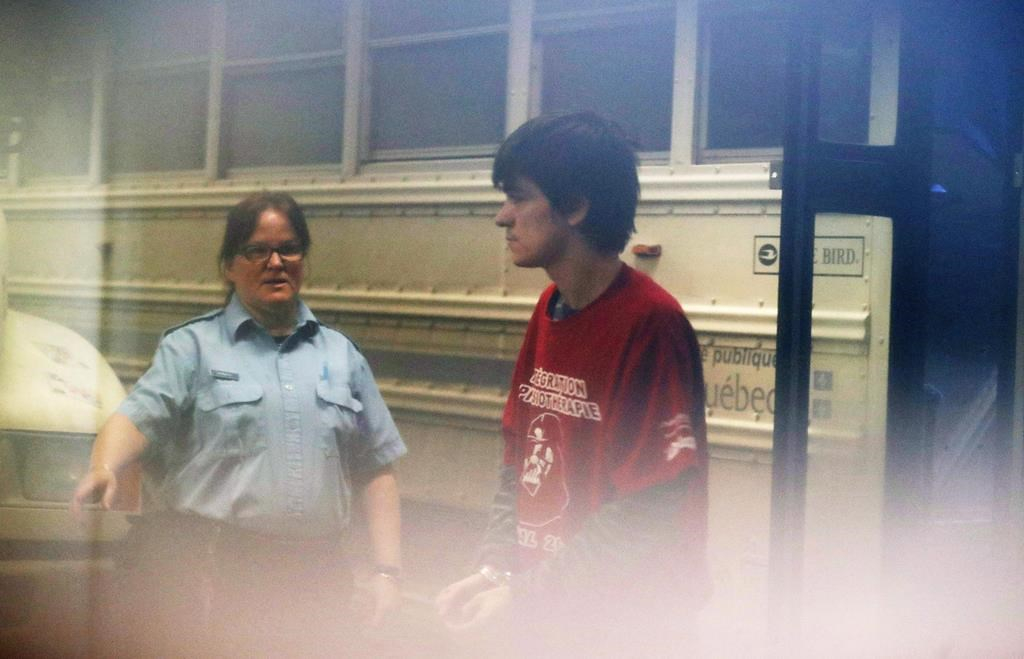Support strong Canadian climate journalism for 2025
The parents of a man behind the deadly Quebec City mosque attack have issued an open letter questioning the severity of the minimum 40-year sentence handed down to their son last week.
Alexandre Bissonnette, 29, received his sentence Friday for killing six men and injuring six others at the Islamic Cultural Centre mosque on Jan. 29, 2017.
His parents, Raymond Bissonnette and Manon Marchand, say in the letter released Monday that the sentence is the harshest imposed in Quebec since the death penalty was abolished in 1976.
They say the Crown's request for six consecutive life sentences, which would have prevented their son from seeking parole for 150 years and guaranteed that he end his life behind bars, amounted to circumventing the abolition of the death penalty and would terminate all hope of rehabilitation.
Meanwhile, Quebec Superior Court Justice Francois Huot concluded a sentence of 50 years or more would constitute cruel and unusual punishment for the 29-year-old.
Bissonnette's parents say he suffered psychological and physical bullying during his years in school that had "devastating effects" on his personality.
"If we really want to prevent such a tragedy from happening again, it seems to me that the solution is not to lock someone up forever, but rather try to better understand and prevent bullying, which is a serious societal problem that continues to make victims among our young," the letter reads.
His parents say people who commit serious crimes should still have the possibility to apply for parole after 25 years — a "glimmer of hope" they say would encourage rehabilitation.
"Unlike other countries, Canada has chosen an open-door policy, welcoming people from all over the world and giving them hope for a second chance in life," the letter says. "Why deny convicts even the faintest hope?"
Legal experts have said Bissonnette's sentence is likely to be appealed all the way to the Supreme Court.
However, it has been denounced by survivors of the attack and other Muslim community members.
Boufeldja Benabdallah, president of the mosque that was attacked, said last week that community members were stunned by the decision and felt the judge was more concerned about the dignity of the killer than that of the victims and their families.
Bissonnette pleaded guilty last March to six counts of first-degree murder and six of attempted murder after he walked into the mosque during evening prayers and opened fire. The murder victims were Mamadou Tanou Barry, 42; Abdelkrim Hassane, 41; Khaled Belkacemi, 60; Aboubaker Thabti, 44; Azzeddine Soufiane, 57; and Ibrahima Barry, 39.





Comments